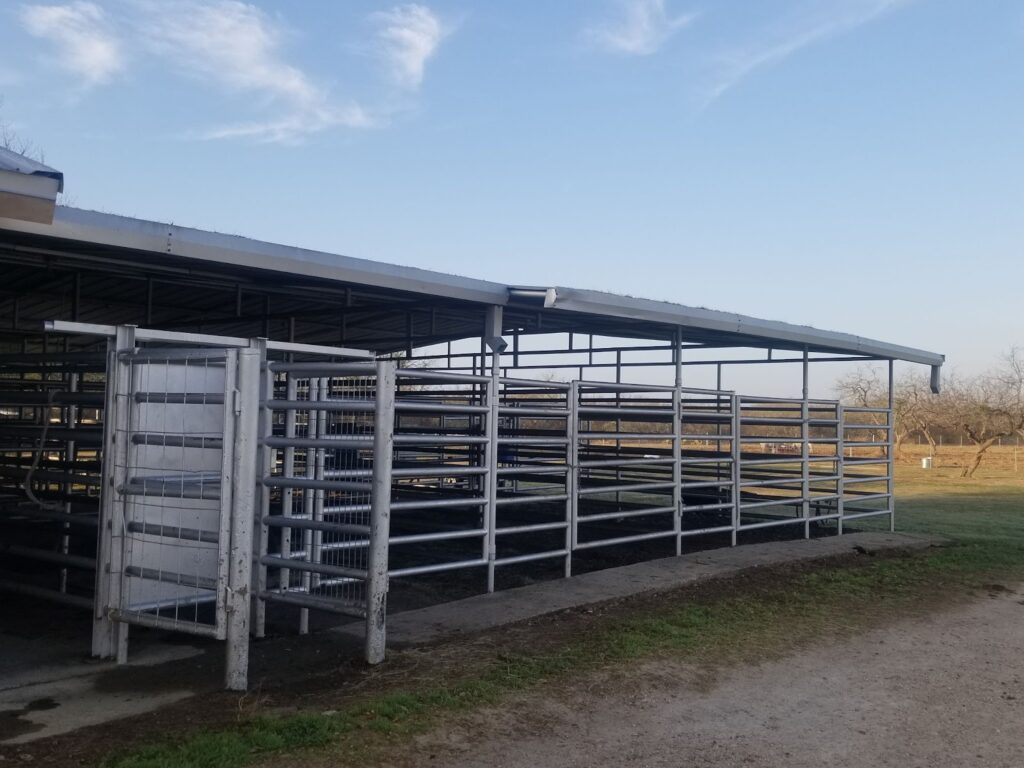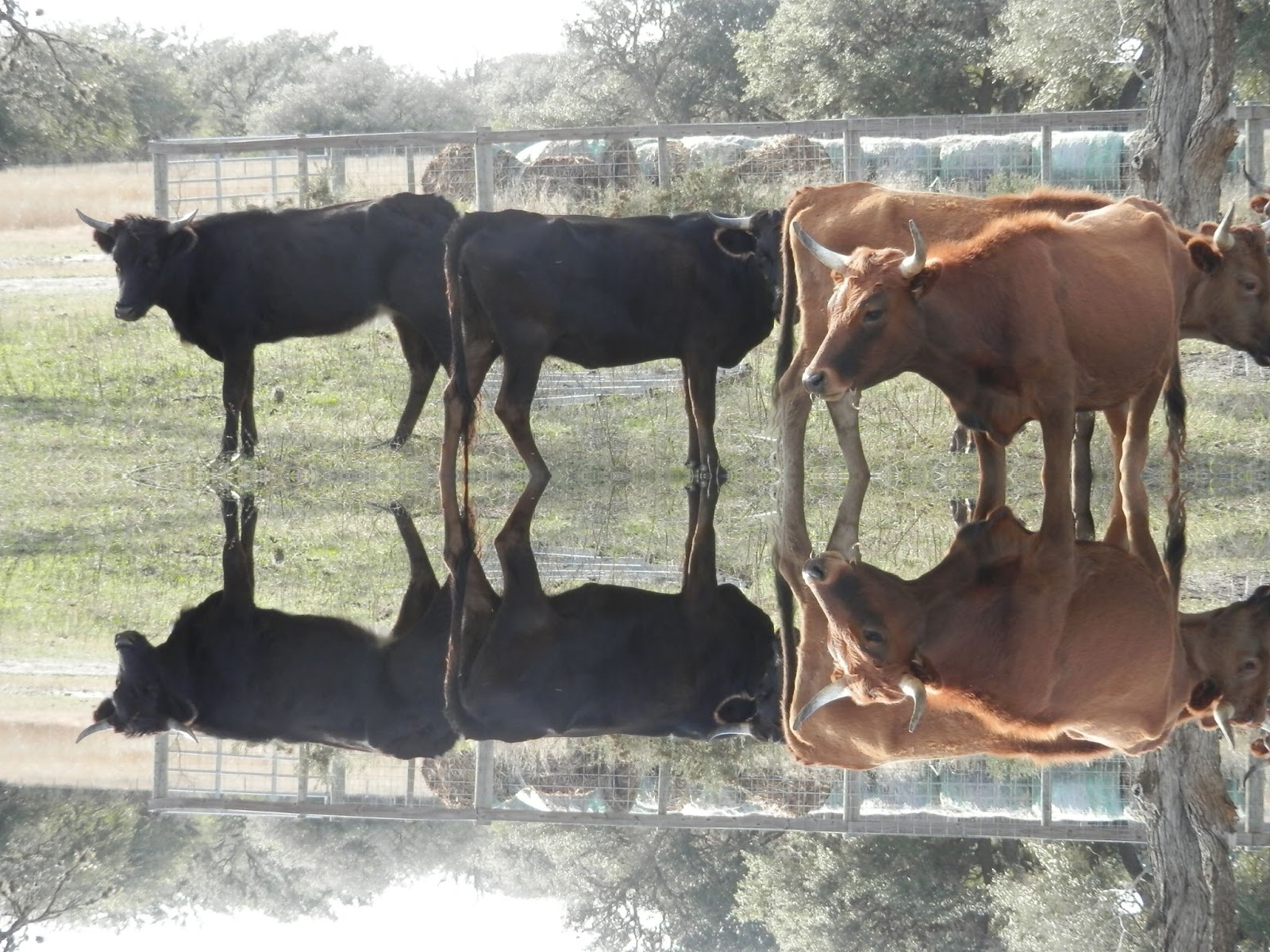The Medical Side of Cattle Herd Health
Any cattle caretaker understands that a cow’s health involves so much more than simply taking them out to pasture, milking the cows that need it, and proper feeding practices. Cattle health is essential to herd productivity and consequently the success of any type of cattle operation. To ensure the members of your herd are healthy, employ a combination of vet-approved practices, including vaccinations, deworming, and general herd health management. It is important that you have the information and expertise necessary to maintain your cattle’s health; that’s where Sinton Vet Clinic comes in!
Our team is well-trained in cattle management, especially here in Sinton, TX. We care for a variety of animal patients, ranging from the runt of a chihuahua litter to the largest texas longhorn. With this experience, we have the tools necessary to evaluate, address, treat, and follow-up on any issue your bovine buddy is experiencing. Give us a call at (361) 364-4551 or send us an email for more information about the large livestock services we offer!
Vaccination Protocols
Cattle can be surprisingly vulnerable to a variety of infectious diseases, which makes vaccinations crucial to maintaining your herd’s health. Vaccinations effectively prevent disease, but do not treat the illness, meaning that vaccinations are entirely preventative healthcare. Protect your animals from serious diseases and long-term problems with the important vaccines discussed below.
Core Vaccinations: Core vaccinations are a vital part of cattle herd health and can make major improvements to your herd and their production. These vaccines protect against common diseases that often turn deadly when not promptly treated or prevented. The primary core vaccines for cattle include:
- Bovine Respiratory Disease (BRD): BRD is a very wide umbrella term for a variety of respiratory diseases that our bovine buddies suffer from. Vaccines for diseases like Infectious Bovine Rhinotracheitis (IBR), Bovine Viral Diarrhea (BVD), and Bovine Respiratory Syncytial Virus (BRSV) are crucial to prevent respiratory illnesses and should be properly administered.
- Clostridial Diseases: Clostridial vaccines are essential to protect against highly fatal diseases caused by members of the clostridium genus. To avoid Blackleg, Malignant Edema, Black Disease, and Clostridial Enterotoxemia, your herd needs a preventative vaccine and scheduled boosters.
Non-Core Vaccines: Depending on your region and herd’s specific needs, additional vaccines may be recommended. Our clinic is located in Sinton, TX and we often recommend vaccinating against these diseases:
- Leptospirosis: More commonly referred to as “lepto,” leptospirosis damages reproductive function, liver damage, kidney damage, and general poor health. Lepto is very easy to transmit via bodily functions, putting your herd at risk. Not to mention, lepto is zoonotic, presenting concern for humans near the infected cattle.
- Bovine Viral Diarrhea (BVD): BVD is a viral disease that can have a significant impact on cattle health and reproduction. The virus attacks the cow’s immune system, reproductive capabilities, and overall health. BVD is highly transmittable, so informed prevention and prompt treatment is essential to your herd’s health and productivity.
- Pinkeye: Pinkeye is a common eye disease in cattle, and it can be a significant issue in regions with a lot of face fly activity. While it may not seem as prevalent as the aforementioned diseases, pinkeye can quickly shut down your farm as the ocular discomfort and pain prevents effective production.
Depending on your cattle’s breed, your management style, the environmental conditions, your cattle’s lifestyle, and specific risks, your herd will need a vet’s expertise to determine the necessary vaccines. Speak with a trusted professional today.
Deworming Strategies
Deworming is a critical element of cattle herd health and productivity as internally parasitic worms can have a large negative impact on the herd’s members. Often, these worms will attack the animal’s growth, reproductive system, immune system, and even the nervous system. To rid your cattle of this parasite, there are a few deworming strategies you could follow. Some of the most common are:
1. Fecal Egg Counts: While this does not eliminate the parasites, fecal egg counts can help you determine when deworming is appropriate, or even necessary. The fecal egg count assesses the parasite burden in your herd and signals the urgency of the situation. To properly deworm your herd, regularly monitor their fecal egg counts.
2. Targeted Deworming: Instead of wasting your time, money, and energy deworming an entire herd, you can target the individuals that are most at risk. Utilize the fecal egg count strategy to decide which cows may need to see a vet. It’s important to properly manage and track the grazing patterns as this information can help you make important deworming decisions.
3. Rotational Grazing: Implementing rotational grazing is another great deworming method. By allowing the pasture to rest between grazing periods, the parasites are able to live their entire lifecycle without a host and die before the cattle return. Rotational grazing ensures that parasitic infection is eliminated, if not limited to a few members of the herd.
4. Anthelmintic Rotation: Anthelmintics are the classification of antiparasitic drugs that aid in the deworming process. By rotating the type of anthelmintic, parasites cannot develop resistance, fortifying your herd’s health. Often, your vet will have a rotating deworming plan at the ready, so reach out for any advice or assistance.
If you have any questions about the deworming strategies you use, connect with our veterinary experts! Our Sinton Vet team has dealt with hundreds, if not thousands, of parasitic infections, giving us the experience we need to deworm your herd. Contact us today for peace of mind!

Cattle Herd Health Management
General Herd Health Management
Apart from the specific practices mentioned above, there are several health management strategies to keep in mind that will improve the general health of your herd. To properly manage their herd, experienced ranchers will employ these tips:
- Nutrition: Provide your large animals with a balanced diet that meets their nutritional needs and weight goals. Access to clean water, minerals, adequate forage, quality feed, and vet-recommended dietary products are crucial for a cow’s health and overall wellness.
- Biosecurity: It sounds high-tech, but biosecurity simply prevents the introduction of harmful diseases, viruses, and bacteria that can negatively harm the animal’s health. If you are introducing new cattle into the herd, we recommend isolating the new from the old to prevent the rapid spread of disease. It is also important to perform regular health screenings to catch issues early on.
- Housing and Environment: To stay safe, warm, and healthy throughout any season or reason for alarm, your cattle need easy access to dry, covered shelter. Bacteria is easily transmissible to the rest of the herd when introduced into a dirty, damp, and dark environment, so keep your cattle’s housing clean and well-kempt. Remember to utilize adequate ventilation to prevent respiratory issues in the future.
- Monitoring: Through regular monitoring, your cattle’s illness or signs of distress will be promptly addressed and treated. Early detection can lead to a quicker diagnosis, efficient treatment, and a reduced spread of disease. Having a finger on the pulse of your herd’s general health can greatly improve their health.
Take Charge of Your Herd
As we discussed, the well-being of a cattle herd is a multifaceted responsibility that goes beyond the expected and routine tasks. Your cows’ health heavily influences productivity, or lack thereof. By including veterinarian-approved practices like vaccinations, deworming, and general herd health, the vitality and health of the herd are ensured and encouraged. By understanding specific risks (like BVD, pinkeye, respiratory diseases, lepto, and clostridial diseases), you are one step ahead of any illness your cattle may experience. To protect your bovine buddies in the long run, emphasize proper herd management, vet-approved nutrition, and vigilant monitoring; preventing disease is much easier than treating it. Take the appropriate steps and reach out to a trusted veterinary professional today!
Our clinic stands ready with a well-trained team experienced in managing various animal patients, so no task is too small or large for us. For unbeatable personalized guidance on your cattle’s health, contact Sinton Vet Clinic at (361) 364-4551 or shoot us an email. We have the tools and information you need to ensure a robust and thriving cattle operation for years to come, so reach out today!





